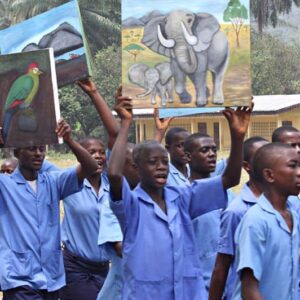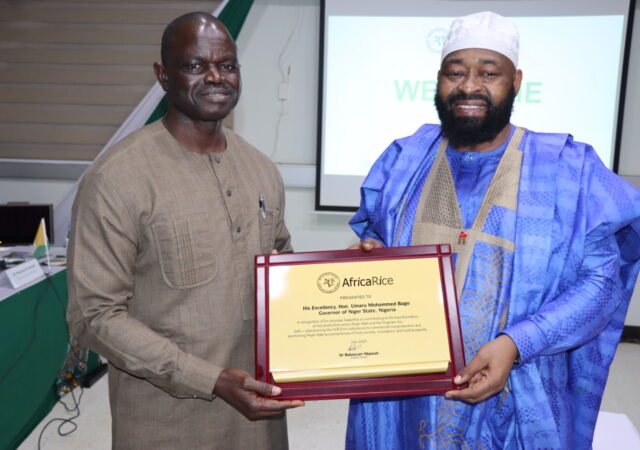- Community Conservation Initiative Benefits People, Nature, and the Cross River Gorilla
- The Cross River Gorilla is one of the 25 most endangered primates worldwide
With about 300 Cross River gorillas remaining in the wild, an urgent call for conservation has emerged from a species on the brink of extinction. The Wilder Institute/Calgary Zoo is excited to announce that it has expanded its community conservation portfolio to include the Critically Endangered Cross River gorilla (Gorilla gorilla diehli) through a collaborative initiative that will involve supporting graduate research projects in Nigeria.
Around the world there has been an increasing focus on community involvement to save species. Having embraced community conservation as early as 1998, Wilder Institute know that it leads to sustained improvements for imperiled species, their habitat, and local people.
To sustain conservation efforts long-term, local conservation leadership is key. It therefore was a natural fit for the Wilder Institute to partner with two West African conservation organizations including the Nigerian Conservation Foundation (NCF) and Centre for Biodiversity Conservation Research (CBCR), which share a similar vision of building up conservation leadership in the region, to advance conservation for the Cross River gorilla.
“We can’t save species without involving those who live in and depend on the landscape shared by species-at-risk,” said Dr. Mary Liao, Conservation Partnership Specialist. “Genuine engagement and knowledge sharing with forest communities bordering the Cross River Gorilla habitat will help the protection of the species. Exposing West African graduate students to this approach fosters home-grown future leadership for successful conservation in Nigeria and the wider region.”
The Cross River gorilla – a species on the brink
The Cross River gorilla is a subspecies of the western gorilla. It was named a new species in 1904, but this discovery was largely ignored until population surveys began in 1987. Due to historical hunting and habitat loss, these gorillas are now restricted to 11 small sections of Nigeria and Cameroon’s mountainous forests.

The NCF has been working to obtain a more accurate population estimate of the Cross River gorillas, but also holds great expertise in the provision of alternative livelihoods, community education, policy recommendations, and more.
“Our partnership with the Wilder Institute/Calgary Zoo and other strategic partners was informed by many factors,” said Dr. Joseph Onoja, Director General with the NCF. “We want to build purposeful and strategic alliances aimed at saving species in peril, enhance their protection, secure their habitats, increase community involvement, as well as promote research and awareness on nature conservation. Through these partnerships, we look forward to enhancing the conservation and future prospects of the Cross River gorilla”
A unique opportunity to share knowledge across borders
Through this initiative, the Wilder Institute/Calgary Zoo will fund, support, and help supervise one doctorate and five master research projects focused on the Cross River gorilla, bringing those rooted in West Africa to the forefront of Cross River gorilla conservation. These scholarships will be hosted through the University of Calabar in Nigeria and will fill knowledge gaps around the Cross River gorilla, as well as look at how community-based conservation management and the creation of alternative livelihoods can support gorilla conservation.
CBCR, which is based at the University of Ghana but with partners across 12 countries in West Africa, holds extensive knowledge in the field of community conservation and biodiversity management in Africa. They will provide program participants with first-hand experience of community conservation by hosting each student for a month-long visit to existing community conservation projects in Ghana. Similar learning experiences will also be offered to protected area managers from Nigeria.
“The survival of many rural communities in West Africa is interlinked with the maintenance of healthy ecosystems. We value our partnership with the Wilder Institute and the Calgary Zoo in our efforts to secure healthy populations of vulnerable wildlife species, while at the same time ensuring the well-being of local communities,” said Professor Yaa Ntiamoa-Baidu, chair of the CBCR.
This exciting initiative will bring communities and experts across Nigeria, Ghana, and Canada together to advance conservation for a truly unique species, that deserves a unique collaboration to support it.







